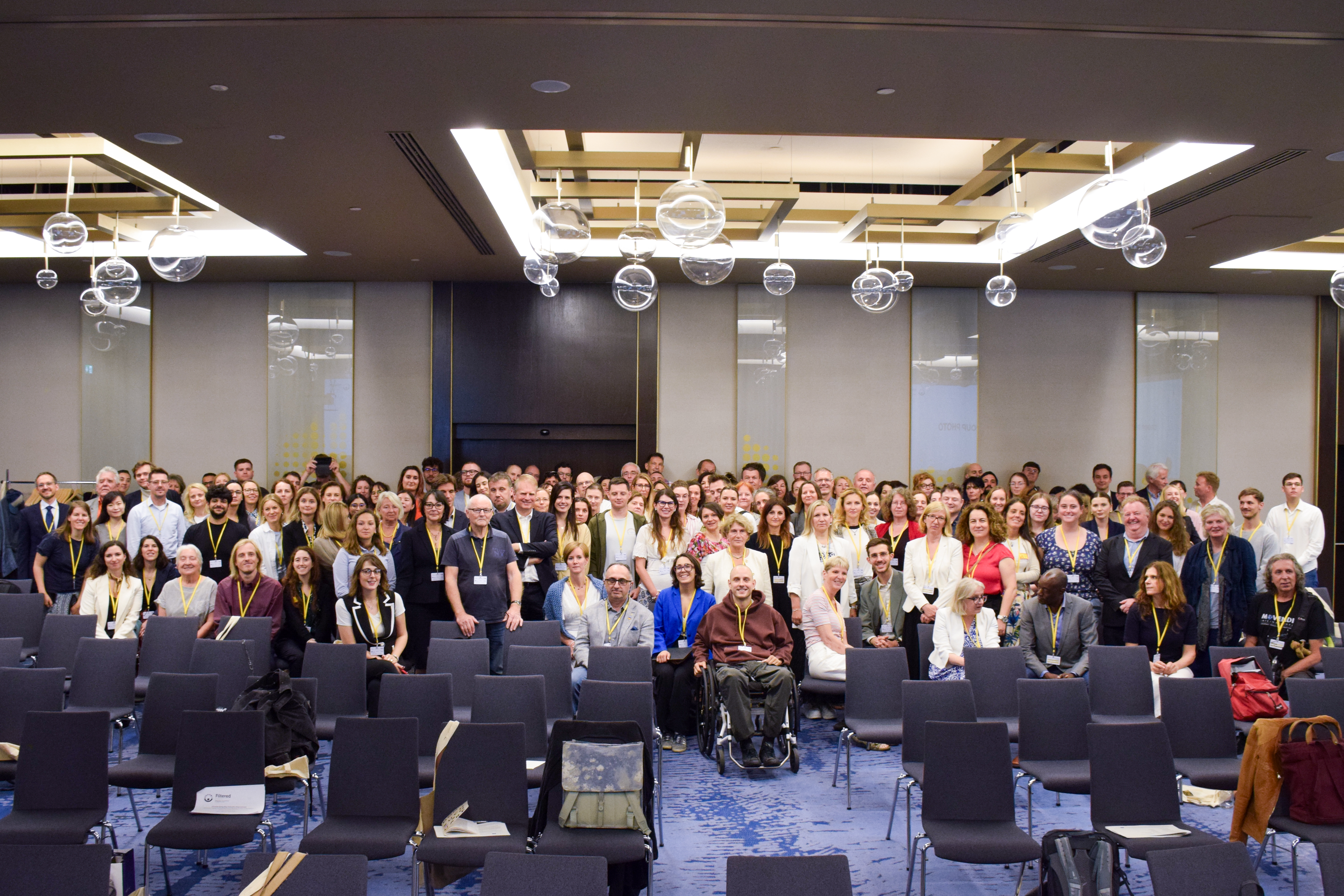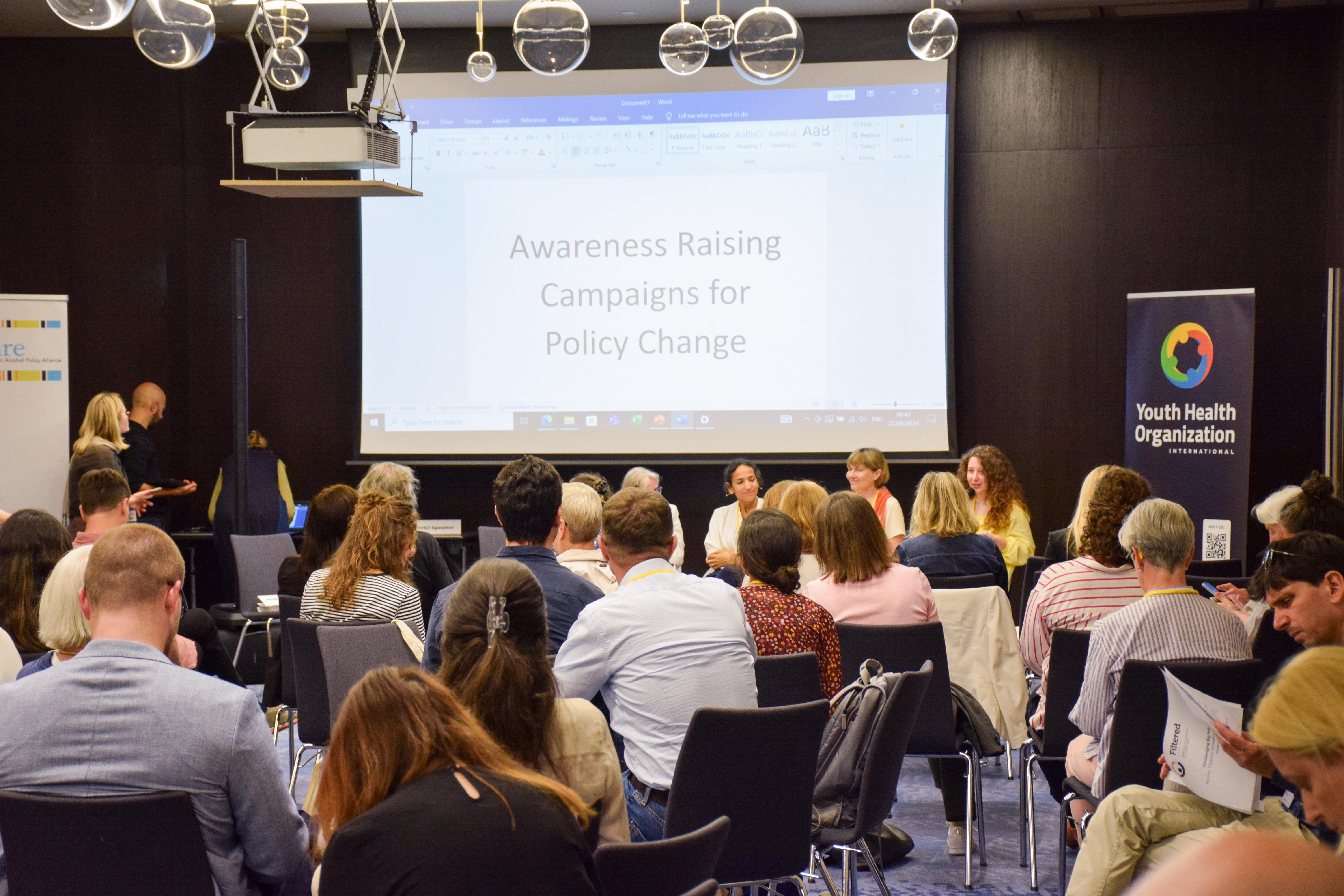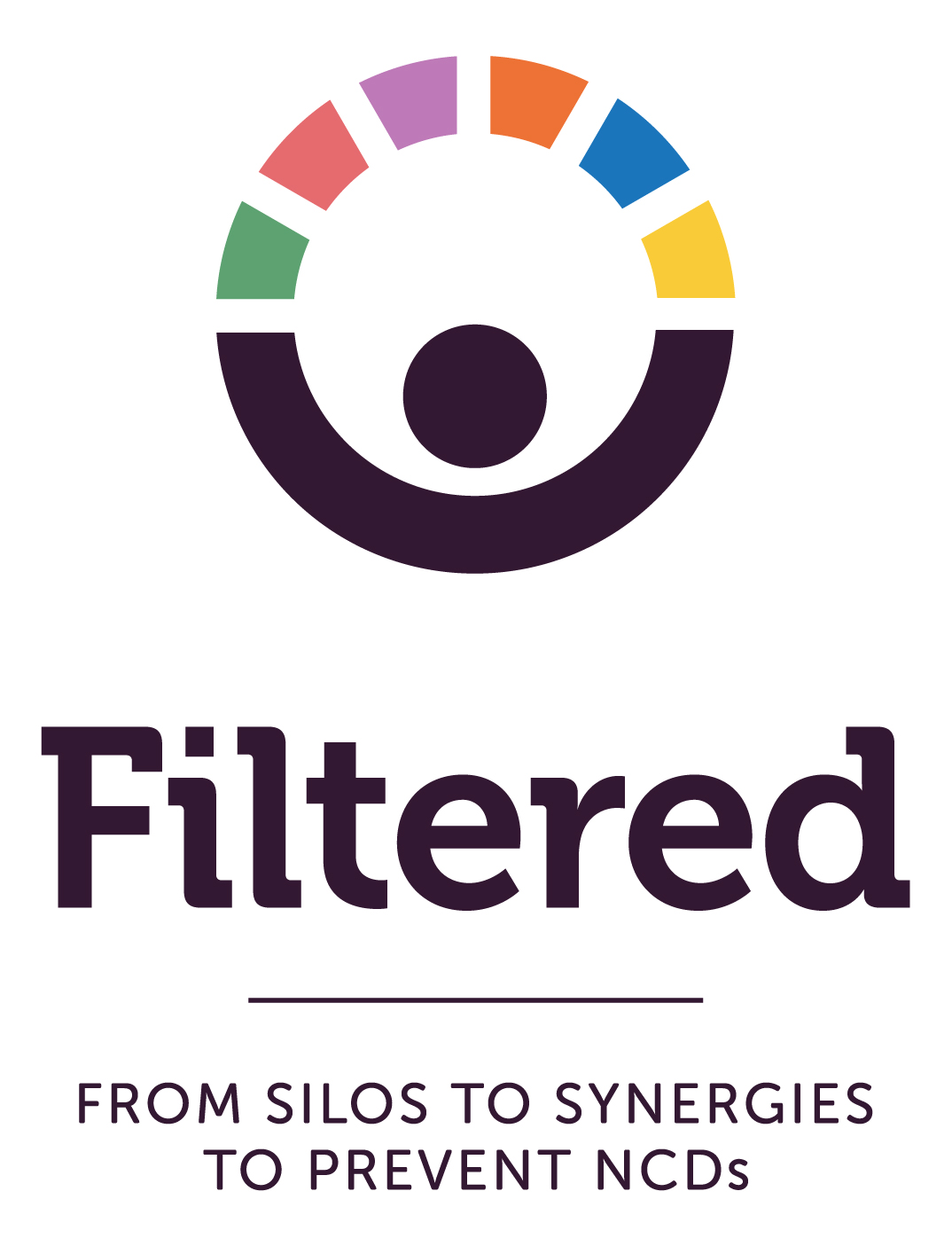Challenging Industry Narratives and Advancing Unified Advocacy: Reflections from the Filtered 2024 Conference
Overview
The "Challenging Big Industry Narratives. Alcohol, Tobacco, Unhealthy Food and Drinks: Population Measures and Policies" conference, held in Ljubljana, Slovenia on 27–28 June 2024, represented a key moment in public health advocacy. It brought together for the first time the communities addressing three risk factors of non-communicable diseases: alcohol, tobacco and unhealthy food and drinks, with the aim of developing integrated strategies against the Commercial Determinants of Health (CDoH).
Conference Highlights
The conference facilitated cross-sector collaboration, breaking away from the tradition of single-topic events and research-oriented discussions. An overarching acknowledgement was: We know what to do; we need to find out how to do it together and convince policy-makers to act. The collaboration among professionals working on different risks factors is crucial given the current political landscape, and building a united front is the safest way to influence policy effectively. The two-day event featured plenary sessions, panel discussions, and interactive workshops. Participants shared insights and strategies on making the case for prevention, implementing taxes and marketing restrictions on health-harming products, and mobilising community action.
Additionally, in memory of Tiziana Codenotti, former President of Eurocare and Eurocare Italy, who passed away in 2023 and was a leading voice in alcohol advocacy, Eurocare awarded the Tiziana Codenotti Award for the Fight Against the Commercial Determinants of Health to policy makers who have been exemplary in advocating for health policies. This year, the prize went to Sara Cerdas, Portuguese MEP for S&D during the 2019-2024 period, to Frank Vandenbroucke, Belgium’s Minister of Health and Social Affairs in 2020-2024, and to Gauden Galea, WHO’s Strategic Adviser to the Regional Director on the Special Initiative on NCDs and Innovation.
Results and Impact
- Breaking Silos. The conference was a successful step towards an integrated approach between the NCD risk factors, notably alcohol, tobacco and unhealthy food and drinks, helping to map the areas of common action and ways of dissolving the silos that often block progress in public health. Recognising the importance of working together, the event emphasised the need for learning from one sector to the other and building further collectively, without letting the focus on one area delay action on another. Stakeholders must collaborate by sharing data, and evidence, and pooling resources to maximise impact and reduce costs. Strong and strategic alliances are crucial as health harming industries are already collaborating and using similar tactics across different products.
- Advocacy against the Commercial Determinants of Health. Attendees developed strategies to advocate against the commercial determinants of health. The focus was on reducing alcohol-related harm, tobacco control, and decreasing the consumption of unhealthy foods and drinks. This aligns with the EU’s “Healthier Together” NCD initiative and the WHO Best Buys policies. However, for this to be possible, independent, predictable public funding is vital. Health advocacy needs this in order to remain free from external influence and counterbalance the influence and impact of big corporations. Another key insight was that health advocates often speak primarily to health ministers, who are typically already supportive. Instead, there is a need to engage ministers of finance, agriculture, tax services, justice, energy, and transport – to name a few. Effective communication tailored to resonate with all sectors is crucial for fostering collaboration and achieving meaningful progress. Clarity, predictability, and a comprehensive understanding of regional, national, and EU competencies are essential. Public officials require evidence that action against the Commercial Determinants of Health will not negatively impact the economy, labour market, or key interest groups. On the contrary, this will bring benefits, such as increased revenues, lower traffic accidents, and reduced hospital waiting lists - in other words, better health and well-being - paving the way to a well-being economy.
- A well-being economy. Although governments have the knowledge and capacity to address the consumption of unhealthy products and reduce NCDs, they often hesitate due to economic concerns. Traditional measures of success, such as GDP, often prioritise total production value, at the expense of public health and well-being, leading to unsustainable outcomes. Governments must prioritise the well-being of people and the planet, shifting towards an economy that values health and sustainability more than mere economic growth.
- Political Action. In light of rising extremist movements, political polarization and shifting political trends in the EU but also broadly in Europe and internationally, the conference showcased the importance of proactive, unified advocacy to protect public health. Examples from Nordic countries, where new tobacco products were authorised and alcohol monopolies challenged, illustrate this point. Public awareness campaigns should focus on exposing industry actions and not only on providing information and atempting to change individual choices. Mobilising public opinion and support for NCDs policy change is essential to influence policymakers to act against harmful industries. Overcoming the normalisation and cultural acceptance imposed by the marketing of health harming products is a key barrier to achieving meaningful change. It is imperative that governments effectively regulate health harming business practices and products to create environments where healthy choices are both easy and accessible for everyone, becoming the default. Additionally, working with WHO is crucial to ensure Member States uphold their commitments, especially in international forums where NGOs often face financial, visa, and access barriers and as a result, the big industry is disproportionally present.
- Youth Action. The Filtered project awarded scholarships to 20 young delegates from all around Europe, working on food, alcohol and tobacco. These delegates actively participated in the conference, providing insightful comments and questions, as well as joining plenaries to challenge the panellists. They highlighted the importance of a trans-generational outlook, emphasising that youth are both the present and future of health advocacy. Young delegates stressed that policies affecting the environment and availability of unhealthy products, along with taxation, are the most effective measures.


Moving Forward
The "Challenging Big Industry Narratives" conference has set a new standard for collaboration in public health, highlighting the power of unity in the fight against non-communicable diseases. By leveraging the synergies created through initiatives like the FILTERED Project, the conference highlighted how much we have in common and how effective this community can be in combatting the Commercial Determinants of Health (CDoH). It is time to apply what we have learned!
Recommendations for the 2024-2029 EU Mandate
- Focus on prevention. It pays off.
NCDs account for up to 80% of all healthcare spending in the EU, with cardiovascular disease, cancer, type 2 diabetes, and chronic respiratory disease alone comprising at least 25% of health expenditure. Each year, approximately half a million working-age individuals in the EU die prematurely due to NCDs, leading to a loss of 3.4 million life-years and €115 billion in economic potential, equivalent to the 2023 annual GDP of Luxembourg and Latvia combined. The impact of NCDs extends beyond healthcare costs, with the four major NCDs causing a 2% loss in GDP across the EU. Investing in prevention is crucial to mitigate these rising costs and improve public health outcomes.
The EU needs to legislate to implement the WHO NCD Best Buys, a set of 16 affordable and evidence-based interventions aimed at preventing and controlling NCDs by addressing risk factors. These interventions are cost-effective, costing on average €0.78 per person per year, and can contribute significantly to social and economic development, with a return on investment (ROI) of nearly 12:1 for certain interventions. For instance, for every euro invested in reducing tobacco use, the return is over €6.50; for alcohol reduction, it is approximately €7.60. Overall, WHO NCD Best Buy measures yield an average return of €6.50 for every euro invested.
- Remember: Population level measures are the most effectives
Corporations frequently attribute NCDs to individuals' "poor" or "irresponsible choices", diverting attention from effective public policy interventions. In reality, the big industry creates environments that promote overconsumption and evade health standards, yet blame the public for the resulting harms. Health-damaging industries depict themselves as helpful while promoting ineffective actions that often serve their interests. For instance, tobacco industry-funded youth smoking prevention campaigns have been found ineffective and even harmful. Additionally, commercial interests normalise the idea that government intervention is unnecessary, portraying themselves as defenders of personal freedom.
However, measures targeting the individual are less effective than population-level policies. Measures targeting the entire population, such as taxation, marketing bans, and availability restrictions, are more effective than those aimed at specific groups, as they help reduce inequalities and benefit the most vulnerable, according to the latest evidence. Effective public policies should focus on measures that seeks to change the environment people live in. This includes marketing restrictions, taxation on harmful products, and reducing subsidies for health harming products and services. Protecting public policies from commercial influence is crucial. For this, we need transparency measures, training of policymakers on commercial determinants of health, and conflict of interest management. By implementing population-wide measures, we can ensure that every individual, regardless of their background, has the opportunity to lead a healthy life.
- Concretely: Revise the FIC Regulation
Under the Europe Beating Cancer Plan, the EU Healthier Together initiative, and the European Framework of Action on Alcohol, a variety of comprehensive measures have been proposed and recommended to address alcohol-related harm. The Europe Beating Cancer Plan includes commitments to review EU legislation on alcohol taxation, introduce mandatory labelling of ingredients and nutritional information, and propose health warnings, which will require revisions to the FIC Regulation. Additionally, it promised to address the legal framework for cross-border alcohol purchases and young people's exposure to online alcohol marketing through the Audiovisual Media Service Directive. The EU Healthier Together initiative and the European Framework of Action on Alcohol also recommend adjusting alcohol pricing for inflation, restricting advertising and promotion, and regulating availability through controls on location, density, and operating hours.
Despite comprehensive impact assessments and public consultations conducted in 2020 and 2021, these crucial measures have been delayed with no indication of an updated timeline. It is imperative for policymakers to prioritise and expedite the revision of the FIC Regulation to ensure consumers are empowered to decide for themselves once given full and complete information through improved labelling. The health of EU citizens depends on decisive action from policymakers.
About the FILTERED Project
 The FILTERED Project aims to strengthen cooperation among civil society organisations to foster a co-creative approach in addressing the main risk factors of non-communicable diseases (NCDs). Led by Eurocare, in partnership with Smoke Free Partnership, European Heart Network, Youth Health Organisation, Advocacy Center LIFE, and Woman Health & Family Planning; the project emphasises mutual learning and strategic alliances to tackle public health policy gaps. Its activities align and contribute to Europe’s Beating Cancer Plan, the EU “Healthier Together” NCD initiative, JAPreventNCD and WHO’s recommended policy interventions, focusing on integrated actions to reduce NCDs.
The FILTERED Project aims to strengthen cooperation among civil society organisations to foster a co-creative approach in addressing the main risk factors of non-communicable diseases (NCDs). Led by Eurocare, in partnership with Smoke Free Partnership, European Heart Network, Youth Health Organisation, Advocacy Center LIFE, and Woman Health & Family Planning; the project emphasises mutual learning and strategic alliances to tackle public health policy gaps. Its activities align and contribute to Europe’s Beating Cancer Plan, the EU “Healthier Together” NCD initiative, JAPreventNCD and WHO’s recommended policy interventions, focusing on integrated actions to reduce NCDs.

